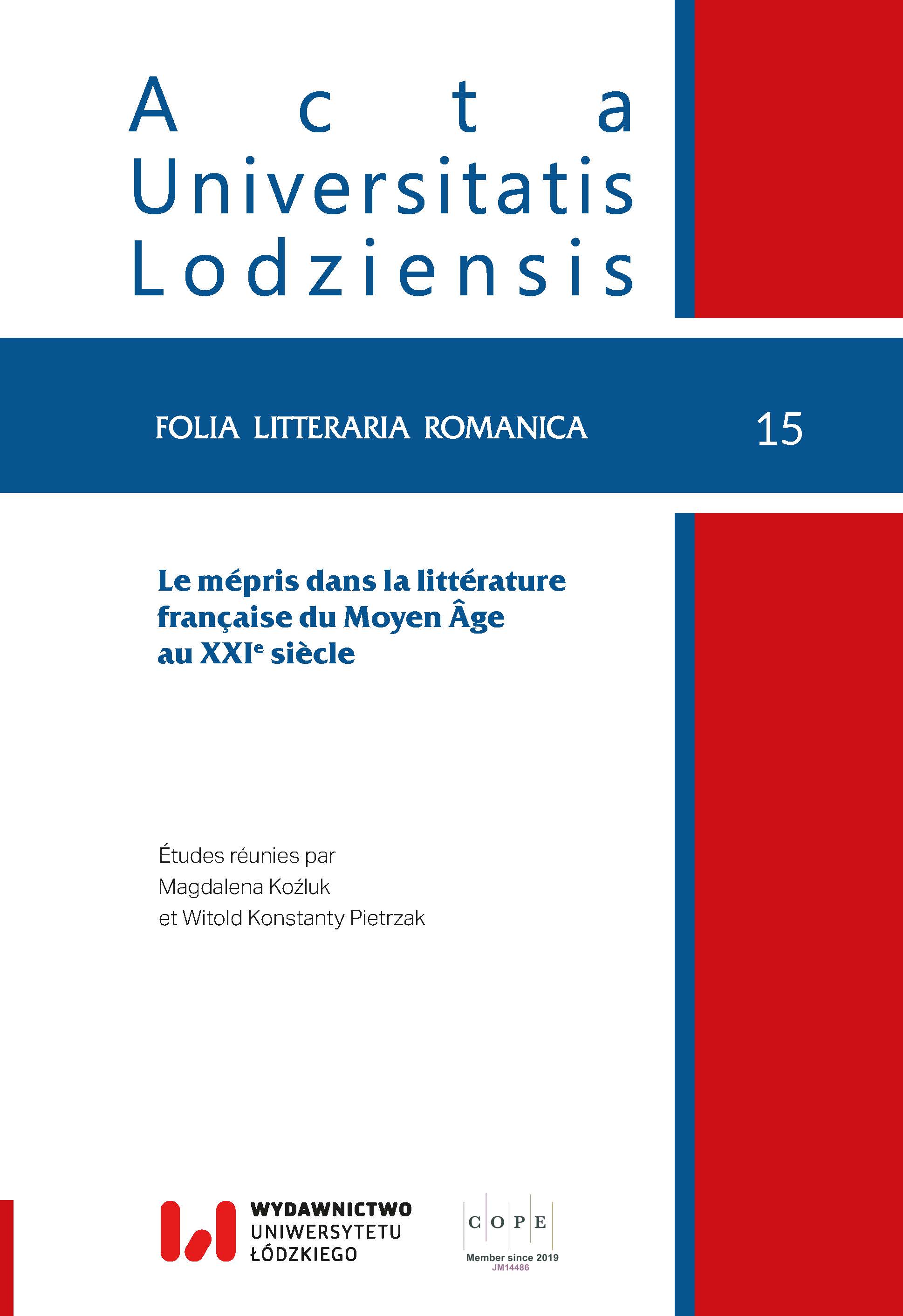L’Adieu du monde, ou Le Mespris de ses vaines grandeurs et plaisirs périssables du Chartreux Dom Polycarpe de la Rivière (1619) : une rhétorique de l’offuscation ?
“L’Adieu du monde, ou Le Mespris de ses vaines grandeurs et plaisirs périssables by the Cartusian Dom Polycarpe de la Rivière (1619): a Rhetoric of Obfuscation?”
Author(s): Jean-Paul PittionSubject(s): Studies of Literature, Philology
Published by: Wydawnictwo Uniwersytetu Łódzkiego
Keywords: Grande Chartreuse; Marguerite de Valois; patrology; humanism; ἔρως; ἁγάπη; rhetoric; spirituality; women; courtiers; Renaissance; France
Summary/Abstract: L’Adieu du Monde ou Le Mespris de ses vaines grandeurs et plaisirs périssables by Dom Polycarpe de la Rivière was published in Lyon in 1619. The author was chorister in the chapel of the exiled Marguerite de Valois at Usson, and spent nine years in the monastery of la Grande Chartreuse. Dom Polycarpe displays a remarquable knowledge of Patristic and Humanist sources, and a taste for Greek, Latin and French contemporary poetry. The rhetoric of L’Adieu du Monde combines quotations from these sources, supported by learned disquisitions, with a relentless denunciation of Church grandees, courtiers and women. Dom Polycarpe summons his authorities as judges and witnesses to his contempt. Nevertheless, his learned rhetoric and his exposé of wordly vanities do not succeed in concealing a sensuality that still haunts him. Between spiritual and sensual love, the ἔρως that inspires the text is closer to Philo and Gregory of Nyssa than to Saint Bernard’s ἁγάπη. L’Adieu du Monde is an example of a form of spirituality shared by some humanist circles and of a baroque style of writing practised in the later period of the French Renaissance.
Journal: Acta Universitatis Lodziensis. Folia Litteraria Romanica
- Issue Year: 2020
- Issue No: 15
- Page Range: 91-106
- Page Count: 16
- Language: French

